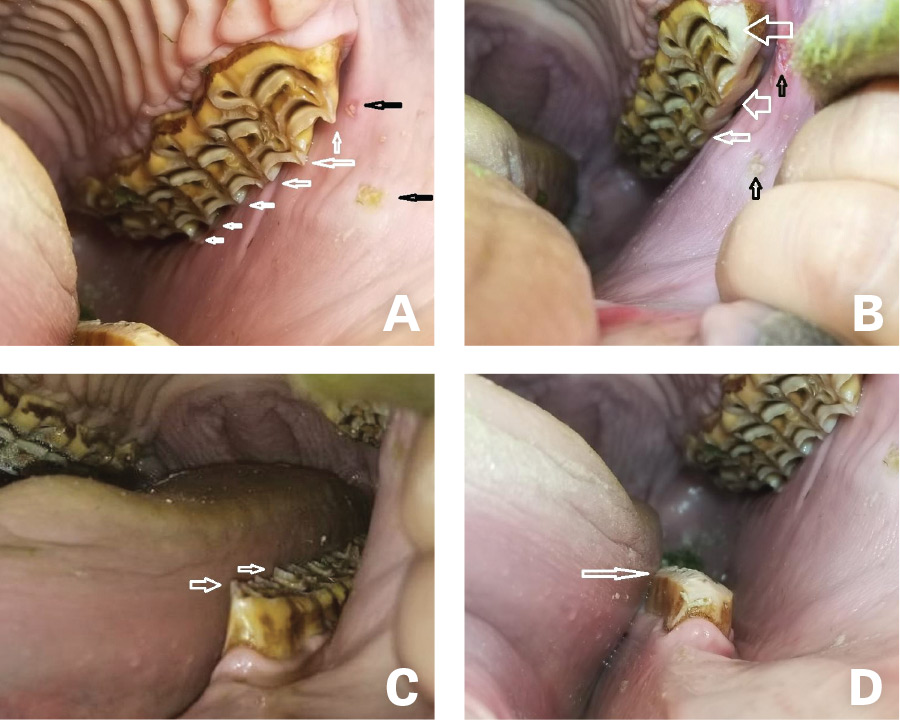By Daniel H. Grove, DVM

In the past, we have discussed the importance of dentistry or floating of teeth. I am often asked, “When should a horse receive its first float?” I think is a great starting point is around the age of one year. I understand people want to stave off putting out money when they can, but hopefully we can show you why it is important to get it done early.
In my practice, I get to do many young horses’ teeth. They are usually 14-20 months old and are going to start getting a bit put in their mouths. All of the horses in these pictures are from the same farm. They have not ever had any bit or other device in their mouths, and they are all 14-16 months old.
Here in this first picture, we are focused on the upper premolars and molars. If you look at the white arrows, you can see the sharp points that normally form on the outer edges of the teeth. As you can imagine, these projections can be uncomfortable. If you look at the black arrows, you can see the ulcers that have formed due to those sharp points.

Here in the second image, these are the teeth after they have been floated. The white arrows are pointing to the beveled edge of the upper teeth that is now smooth against the cheek. The black arrows are pointing out the ulcers. You can imagine that the horse will be able to masticate, or chew, much more comfortably.
In the third photograph, we are focused on the lower teeth. The white arrows are pointing to the sharp points along the tongue.
In this final image, the white arrow points to the floated area of the lower teeth. You can see that the teeth have been beveled along the tongue to make chewing more comfortable.
Very young horses such as these are going to require more frequent attention to their teeth in order to keep them in prime condition for comfortable mastication. Most of the young horses that I get to see routinely will need this redone around every six months until they lose all of the deciduous (baby) teeth. After that, it will vary between individual horses, but if there are not abnormalities, every 1-2 years is usually adequate. If you keep their teeth free from sharp points, they can make better use of their feed, be comfortable, and then be a happier horse.
–Dan
Leave a Comment
All fields must be filled in to leave a message.